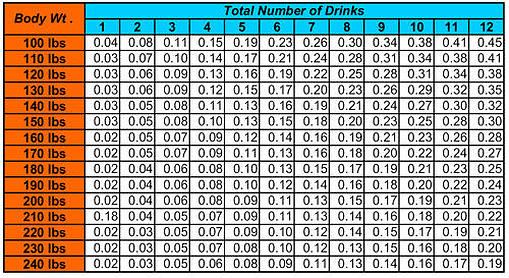Your night is not going well. You’ve been arrested for DUI. Now, the officer is asking you to submit to a breath test to determine your breath alcohol content (“BAC”).
What do you do?
Before you can decide what you want to do, you need to know the potential risks and consequences for either submitting to the breath test or refusing the breath test. If you refuse the breath test, your license will be suspended for a year for the first refusal, and 18 months for a second or subsequent refusal. If you refuse a breath test and have a prior refusal, then you can be charged with a misdemeanor punishable by up to 364 days in the county jail.
Refusing to submit to a breath test can also be used against you in a DUI trial. During your trial, the prosecution can argue that the reason that you decided not to take the breath test was because you knew you were drunk. However, this evidence is generally weaker than evidence that your BAC was high.
Your other option, of course, is to submit to the breath test. You would then blow into a machine that is designed to measure the grams of alcohol per 210 liters of breath. If the result of your breath test is a reading of .08 or higher, the jury can presume you were impaired based on that evidence alone. If the result of your breath test is a reading of more than .05 but less than .08, the jury will not make a presumption that you were or were not impaired. If the result of your breath test is a reading of .05 or less, the jury can presume you were not impaired based on that evidence alone.
So, how can you accurately predict what your breath alcohol content will be on a breath test? The short answer is you can’t, because you can’t be sure the machine the police are using is reliable. The breath test machine is called the Intoxilyzer 8000. It is developed by a company called CMI out of Kentucky. Courts have held that criminal defense attorneys are not entitled to the “source code” for the Intoxilyzer, and therefore are not entitled to know how it works. So, when you take a breath test, you are putting your trust into law enforcement to use a machine that works properly. However, assuming the Intoxilyzer is working properly, your BAC can be calculated by the following chart:

So, should you submit to a breath test? Unfortunately, there is not one answer to this question. The answer is dependent on the situation. In addition, the answer for one person might not be the same for another. Each person must analyze their particular situation and weigh it against the risks and potential consequences that were explained above.
Example 1: You get pulled over and have not had anything to drink. The officer thinks that he smells alcohol, places you under arrest, and asks you to submit to a breath test. One person might want to take the test so that his license is not suspended and he can use the .000 BAC to help his case in court. On the other hand, another person might refuse the test even though he did not have anything to drink because he is worried the machine is unreliable.
Example 2: You get pulled over and are completely drunk. You were convicted for DUI two years ago and refused the breath test for that charge. The officer places you under arrest and asks you to submit to a breath test. One person might want to refuse the breath test to make it harder for the state to prove the DUI case. In contrast, another person might want to take the test to avoid getting charged with another criminal charge for refusing a second breath test.
As you can see, answers can vary depending on the situation and the person. There is one situation, however, when you should almost never blow. If you are sure that you are over the legal limit of .08 BAC, and you have not previously refused a breath test, you should strongly consider refusing the field sobriety exercises and the breath test. In most cases, you will be arrested. However, by refusing the exercises and test, you will make it very difficult for the state to convict you of DUI. As stated previously, this refusal will result in a suspension of your license for a minimum of one year. However, if you are convicted of DUI, your license will be suspended for a minimum of six months, anyways. In addition, most people will be eligible for a temporary license, such as a hardship license for work. In this situation, the benefits of refusing to blow clearly outweigh the consequences of a potential DUI conviction.
Disclaimer: Please note that by reading this blog you are not entering into an attorney-client relationship with Hubbs Law, P.A. This blog only provides general legal information. Every case is different and you should request a free consultation to ensure that you are getting the correct legal advice for your specific case.
Disclaimer:
Please note that by reading this blog you are not entering into an attorney-client relationship with Hubbs Law, P.A. This blog only provides general legal information. Every case is unique and you should request a consultation to ensure that you are getting the correct legal advice for your specific case.

